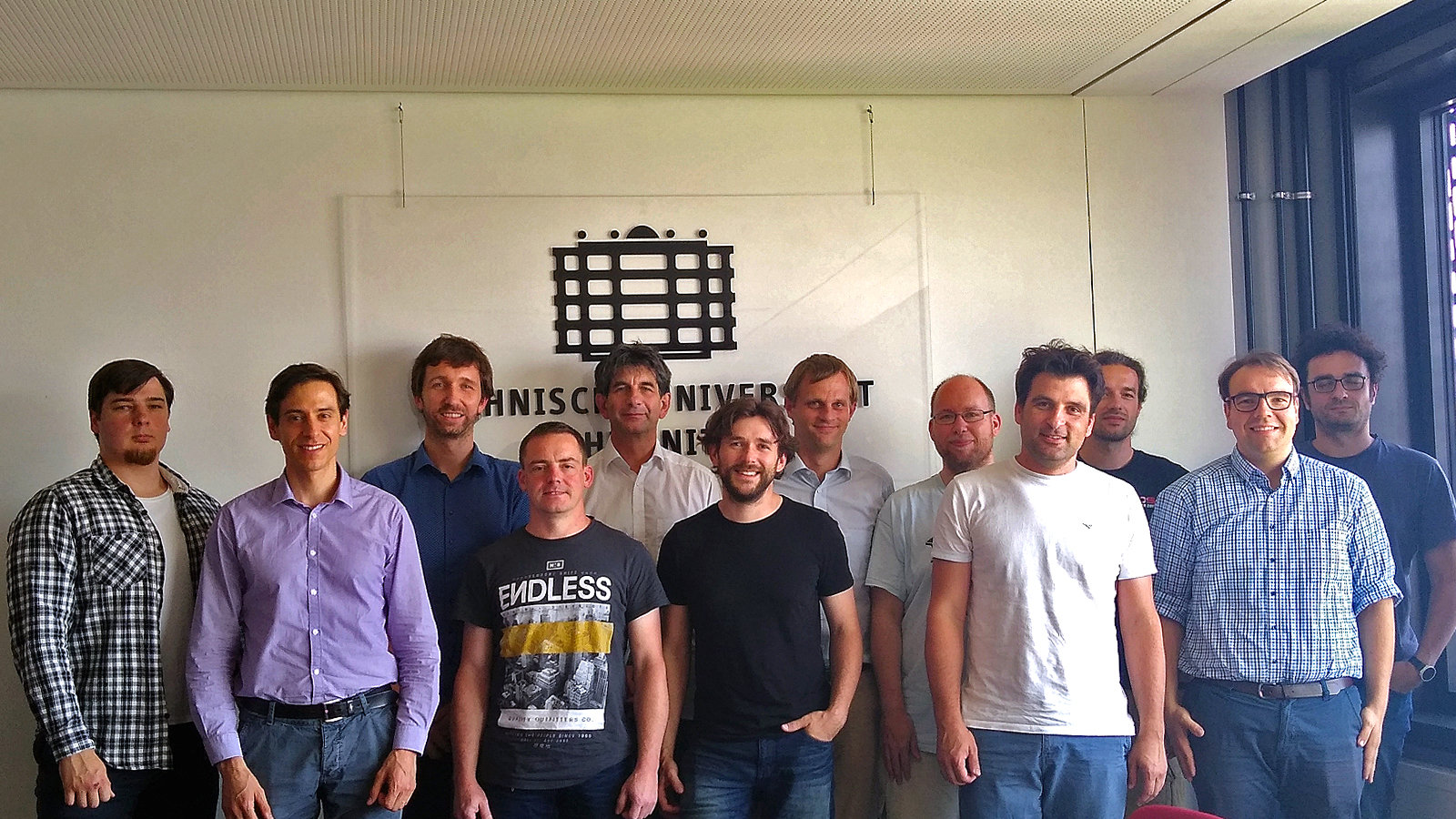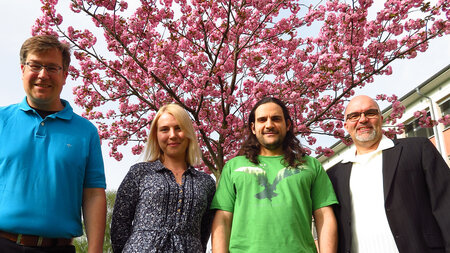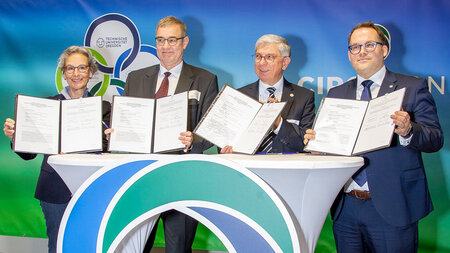Artificial Intelligence That Enables Healthy Aging
State Ministry for Higher Education, Research and the Arts sponsors research project on AI-based care for the elderly
-

In the project researchers work on AI support that shall enable healthy aging. Photo: geralt/pixabay.com (http://bit.ly/2Z63DHU; Licence: Pixabay; http://bit.ly/2UPURLm) -

The KIN-TUC interdisciplinary project team, from left: Pavel Osinenko, Prof. Dr. Alejandro Masrur, Roman Seidel, Wolfgang Kilian, Prof. Dr. Gangolf Hirtz, Matthias Sauppe, Dominik Krumm, Thomas Horn, Prof. Dr. Martin Stoll, Dr. Peer Neubert, Sascha Kaden and Dr. Julien Vitay. Photo: private
To tone down the process of aging via artificial intelligence – this is the aim of the (KIN-TUC) research project, whose full name in English translates to “Building a University-Wide Cooperative Network of Artificial Intelligence Using the Example of Ambient Assisted Living”. The research project will be headed by Prof. Dr. Gangolf Hirtz, Chair of the Professorship of Digital Signal Processing and Circuit Technology at Chemnitz University of Technology. Additional professorships from the university are also involved in the interdisciplinary project. The State Ministry for Higher Education, Research and the Arts (SMWK) is funding the project for a total of two and a half years, until 21 December 2021, with 1.4 million euros altogether.
The systems, which are based on artificial neural networks, increase both the accuracy and reliability of these particular types of setups, which are already being run on low-cost computers. One of these systems is the “KIN-TUC” project at Chemnitz University of Technology.
The nursing sector will benefit from AI support
Artificial neural networks are already in use in various applications today, including medical image analysis, the public security sector and autonomous driving. The idea of supporting care with AI-based assistance systems is very current, as demographics are changing and there is a lack of nursing staff in the field. “In the KIN-TUC project, we are dedicated to the field of ‘active assisted living’. This means that we want to support older people in their own homes, and keep them reminded of everyday recurring tasks,” explains Project Manager Gangolf Hirtz. This is particularly relevant for those who may forget these tasks due to declining mental capacities.
There are already procedures in place that are able to recognise people, however these procedures do not differentiate or derive any disease-specific recommendations for action. However, the AI-based algorithms developed within the KIN-TUC project should be able to support older people who are living alone in their homes. For example, the systems may remind people to move regularly. In an emergency, the system should also be able to make an emergency call, for example, if the resident has fallen.
Chemnitz University of Technology offers ideal conditions for the implementation and testing of this system, via its AAL Laboratory Apartment, which is a testing ground for the various functions of the systems that are being developed. After this testing, the system is able to be transferred to a so-called Living Lab, which is an age-appropriate apartment near the university.
Connecting the actors at Chemnitz University of Technology – via synergy
In addition to its usage at AAL, a primary goal of KIN-TUC is the networking of the various players in the area of AI that exist both at the university and externally. As such, the activities that are taking place within research and application of artificial intelligence should be noticeable, and Saxony’s economy should be strengthened via this future technology.
KIN-TUC is also involved in the further development and university-wide interconnecting of methods and competencies within the realm of AI. The following chairs are involved in the interdisciplinary research project from the faculties of Electrical Engineering and Information Technology, Computer Science, Mathematics and Mechanical Engineering: Digital Signal Processing and Circuit Technology, Artificial Intelligence, Process Automation, Computer Architectures and Systems, Automatic Control and System Dynamics, Robotic and Human Machine Interaction, Circuit and System Design, Sports Equipment & Technology, Computer Engineering and Scientific Computing.
For more information, please contact Prof. Dr. Gangolf Hirtz, Professorship of Digital Signal Processing and Circuit Technology, Phone 0371 531-37378, E-mail g.hirtz@etit.tu-chemnitz.de.
(Article: Matthias Fejes / Translation: Jeffrey Karnitz)
Matthias Fejes
22.07.2019





